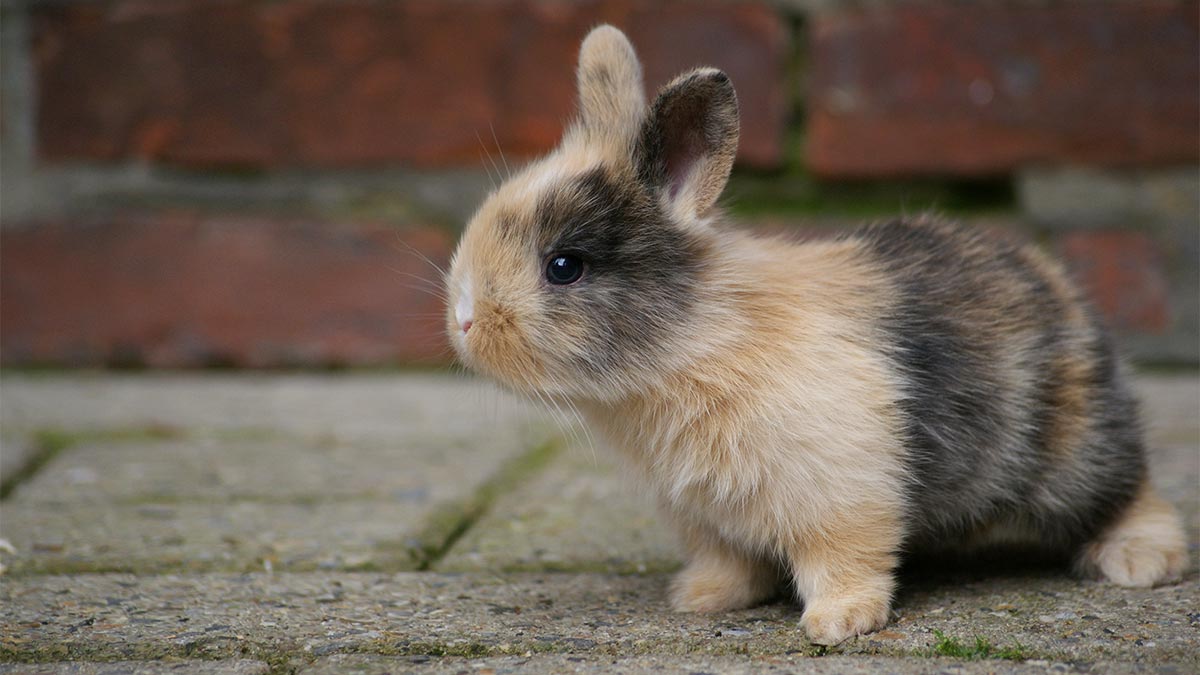Are you thinking about getting a baby rabbit? Whether you’re a first-time bunny-parent or an experienced rabbit-lover, understanding the needs of a baby rabbit is essential to ensure a long and healthy life for your pet. In this article, we’ll cover everything you need to know about baby rabbits, from their diet and living space to their behavior and grooming needs. With this information in hand, you’ll be ready to welcome your new baby rabbit into your home.
What do Baby Rabbits Look Like?
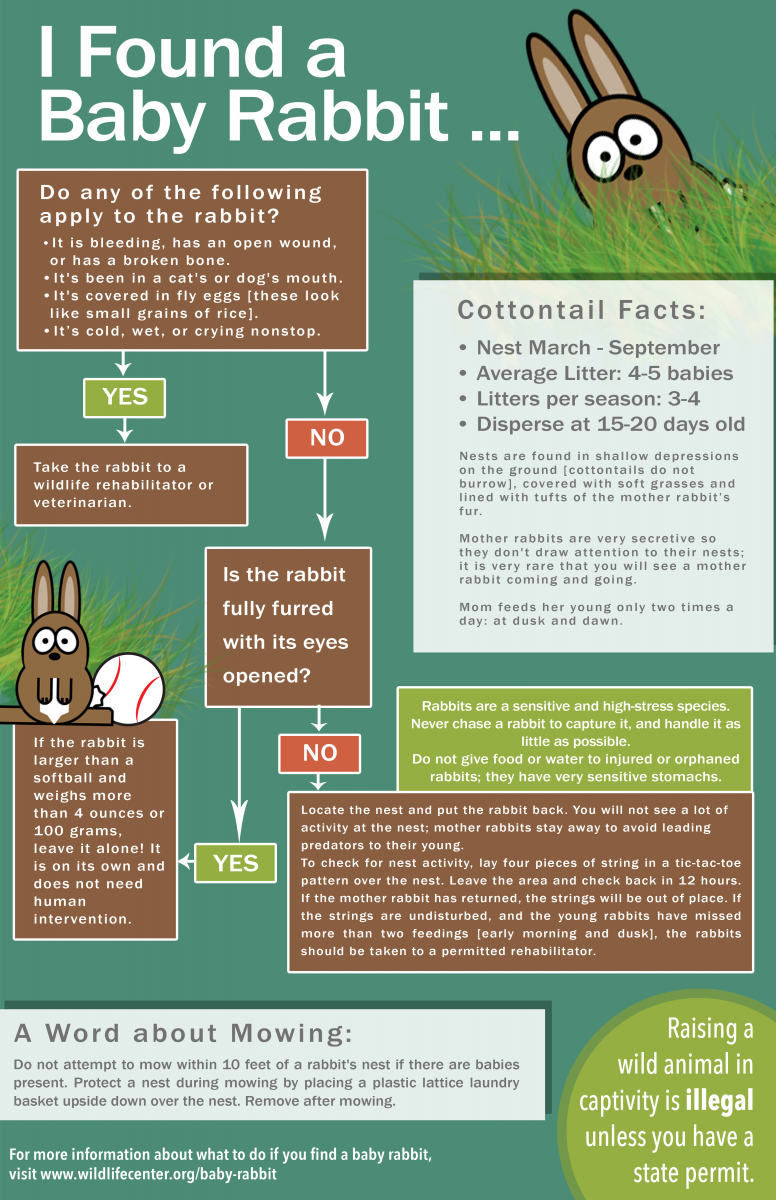
Baby rabbits, also known as kittens, are born blind, bald, and helpless. At 1 week of age, they are small and vulnerable, with only a thin layer of fuzz covering their bodies. As they grow, they will lose their baby fur and become covered in soft, downy fur. The fur may be gray, black, brown, or a combination of these colors.
At 1 week, baby rabbits can weigh as little as 2 ounces and measure less than 3 inches in length. They have large eyes that are not yet open and no visible ears. They have short, stubby legs and a small, kangaroo-like body with a long tail and a small, round head.
Their fur will start to grow in at about 2 weeks of age, and by 4 weeks, they will have a full coat of soft, downy fur. The fur of newborn rabbits can range from white to light gray or even black, depending on the breed. The color of the fur will change and darken as the rabbit matures.
At 1 week, baby rabbits are unable to walk, but they will begin to move around more as they get older. They will start to explore their surroundings and become more active, often hopping around and playing with their littermates.
By 6 weeks, baby rabbits are fully furred and their eyes and ears will have opened. They will be able to hop around and explore their environment, and they will also start to eat solid food.
Baby rabbits are adorable, and they can make an excellent addition to any home. With proper care and attention, they can become loyal, loving companions.
How Long After Birth is a Baby Rabbit Ready to Leave its Mother?
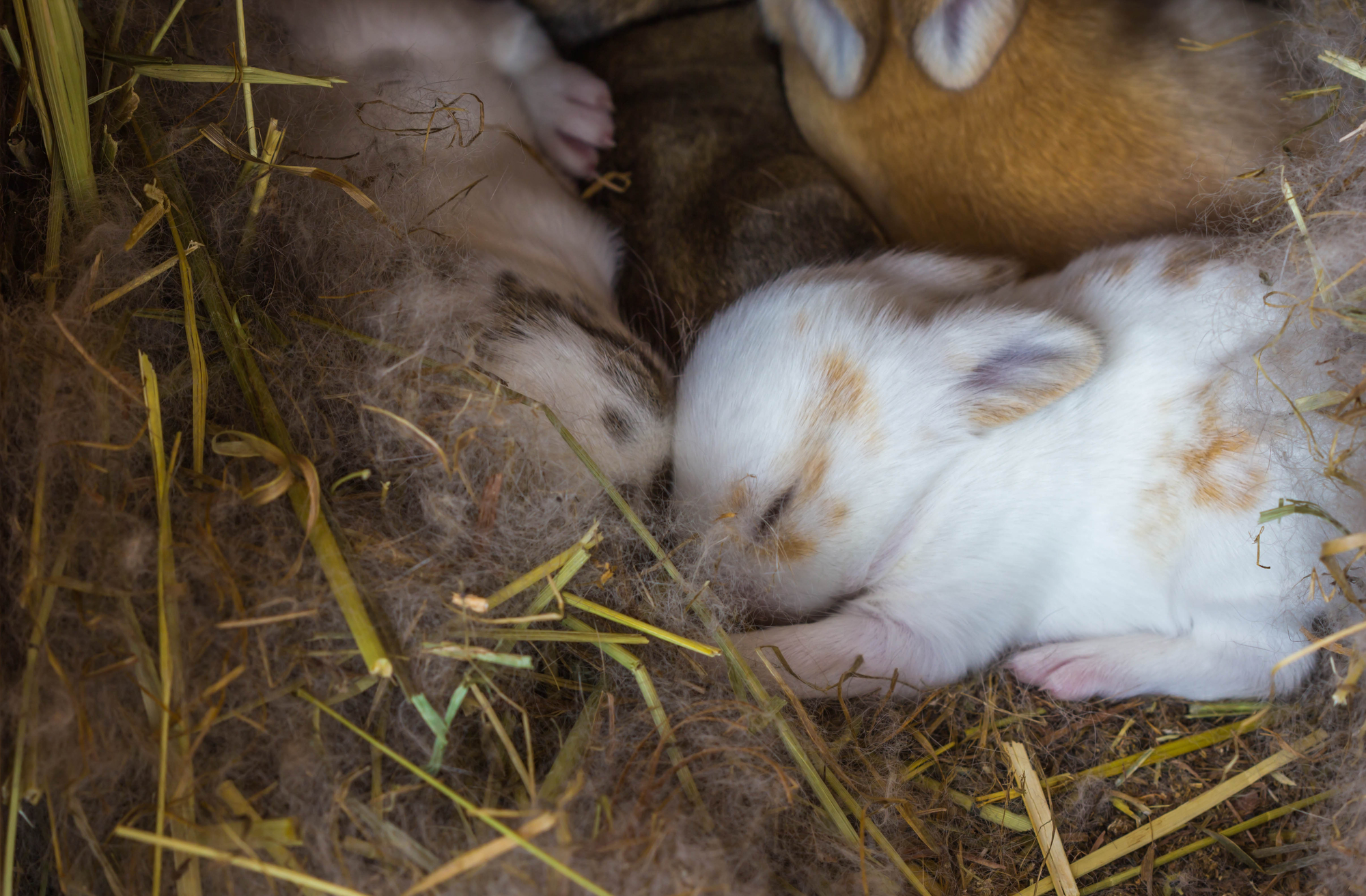
Baby Rabbits are usually weaned from their mother’s milk at about five weeks of age. Once the baby rabbits are weaned, the mother rabbit will start to move her offspring away from the nest. This allows the baby rabbits to start foraging for their own food and learn basic survival skills.
- Baby rabbits are born blind and deaf and are completely dependent on their mother for food and protection.
- At 3-4 weeks of age, baby rabbits start to eat solid food and can move around their environment on their own.
- Baby rabbits are typically ready to leave their mother and venture out into the world at 5-7 weeks of age.
- At this age, baby rabbits will be able to find their own food, recognize predators, and become accustomed to human interaction.
The mother rabbit will also begin to move her young away from the nest to teach them the skills they need to survive on their own. After the baby rabbits have left their mother, they should be kept in a safe, enclosed area to ensure their safety and well-being.
The best time for baby rabbits to leave their mother is around 7-8 weeks of age. At this age, the baby rabbits will have developed the skills necessary to survive on their own and will be able to interact with humans. It is important to ensure that the baby rabbits are in a safe and secure environment before allowing them to explore their new home.
What are the Behaviors of a Baby Rabbit?
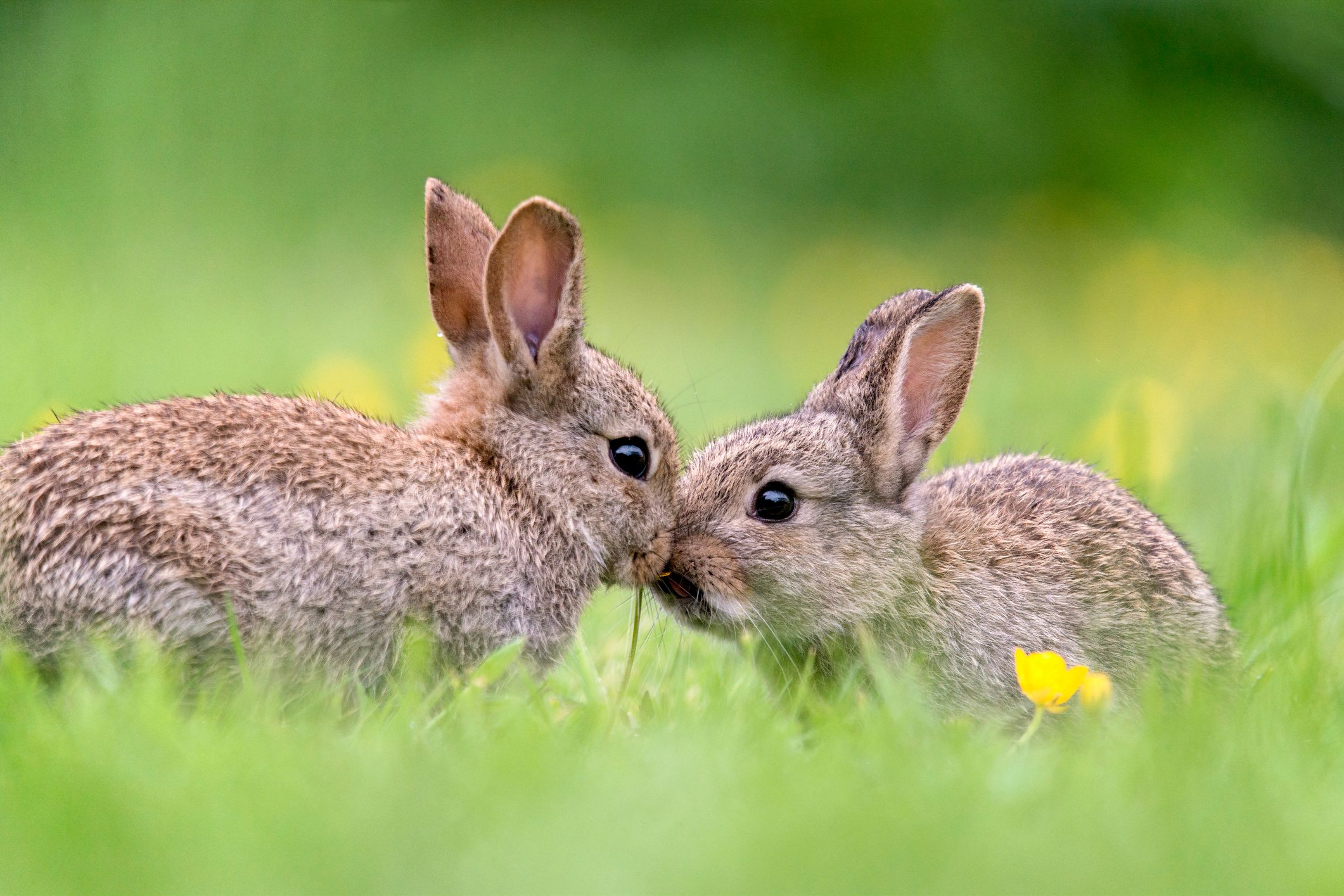
Baby rabbits are generally full of energy, curious, and playful. They have a range of behaviors that help them to survive and interact in their environment.
- Exploration: Baby rabbits are very inquisitive and will explore their environment as soon as they are able to. They will sniff and nibble at objects and surfaces to learn more about their environment.
- Digging: Baby rabbits will often dig in the ground or bedding to make a comfortable place to rest. They may also dig to create a safe place to hide.
- Climbing: Baby rabbits are agile and will often try to climb up on furniture or other objects to explore.
- Binkying: Baby rabbits will often do a series of hops and twists in the air, known as binkying. This is usually a sign of happiness and excitement.
- Chewing: Baby rabbits will chew on anything they can get their teeth on, including furniture, cords and toys. Chewing helps to keep their teeth healthy and it is important to provide them with chew toys.
- Grooming: Baby rabbits will groom themselves and their cage mates. This helps to keep their fur clean and free from parasites.
- Socializing: Baby rabbits will often try to interact with their owners and other animals. This helps them to build relationships and become comfortable in their environment.
Understanding and recognizing these behaviors can help you to better care for your baby rabbit.
What Do Baby Rabbits Need?
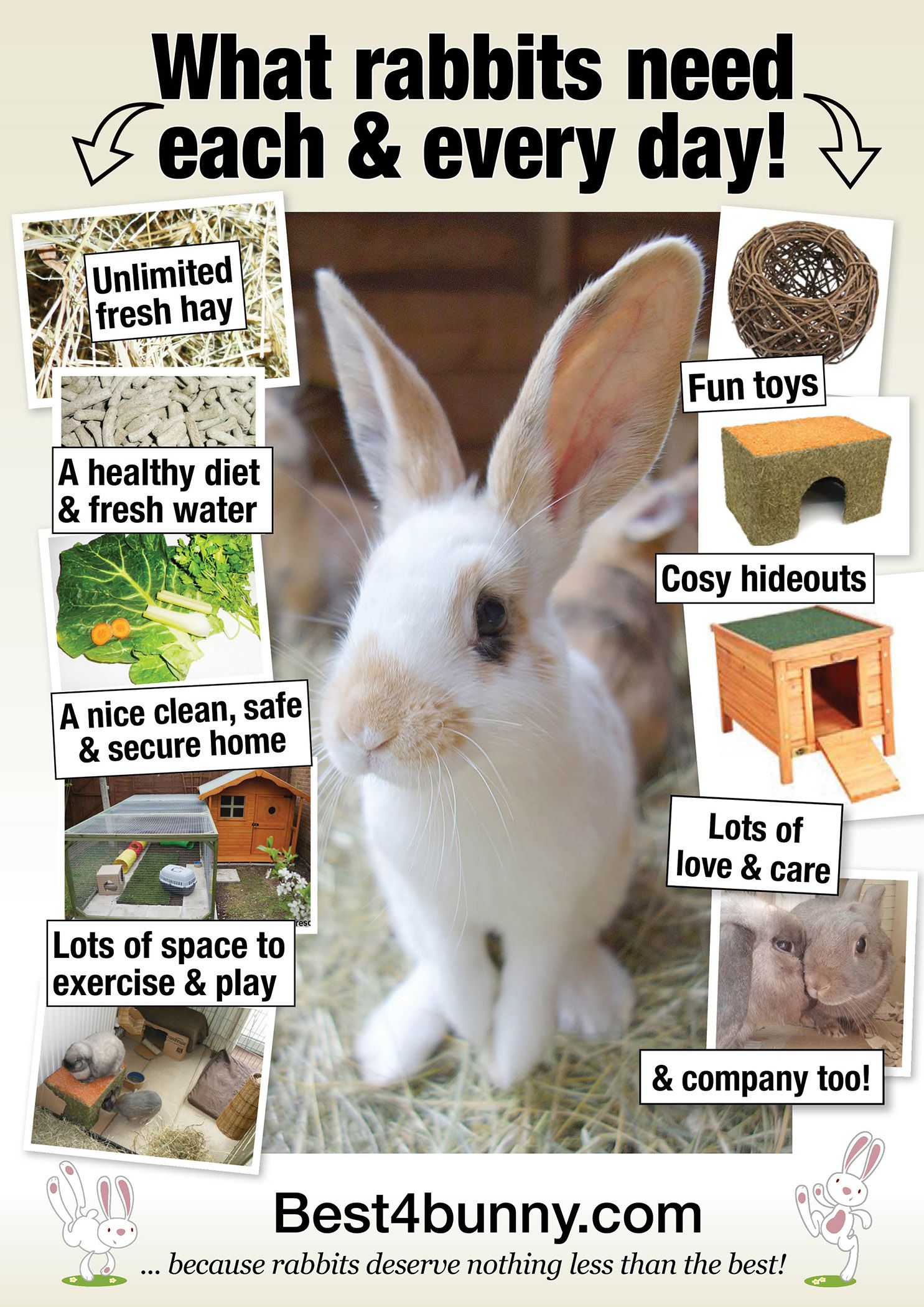
- Food: Baby rabbits need to be fed every 2-3 hours for the first few weeks of their life. They should be given a specialized high-quality rabbit formula that is specifically tailored to their dietary needs.
- Shelter: Baby rabbits need a warm, dry, and safe environment to live in. This can be a hutch or cage, preferably made of wood and with a wire mesh floor.
- Socialization: Baby rabbits need to be socialized on a regular basis in order to become comfortable around humans and other animals. This can be done by talking to them, petting them, and even playing with them.
- Hygiene: Baby rabbits need to be kept clean in order to stay healthy. This means regular grooming and cleaning of their living area and bedding.
- Vet Care: Baby rabbits need to be taken to the vet for regular check-ups and vaccinations. This is important to ensure that they stay healthy and don’t develop any serious illnesses.
In addition to these necessities, baby rabbits need plenty of love and affection. They are social animals and should be handled regularly in order to form a strong bond with their owners. With the proper care, love, and attention, baby rabbits can grow up to be happy, healthy adult rabbits.
Mother Rabbit Feeding Babies
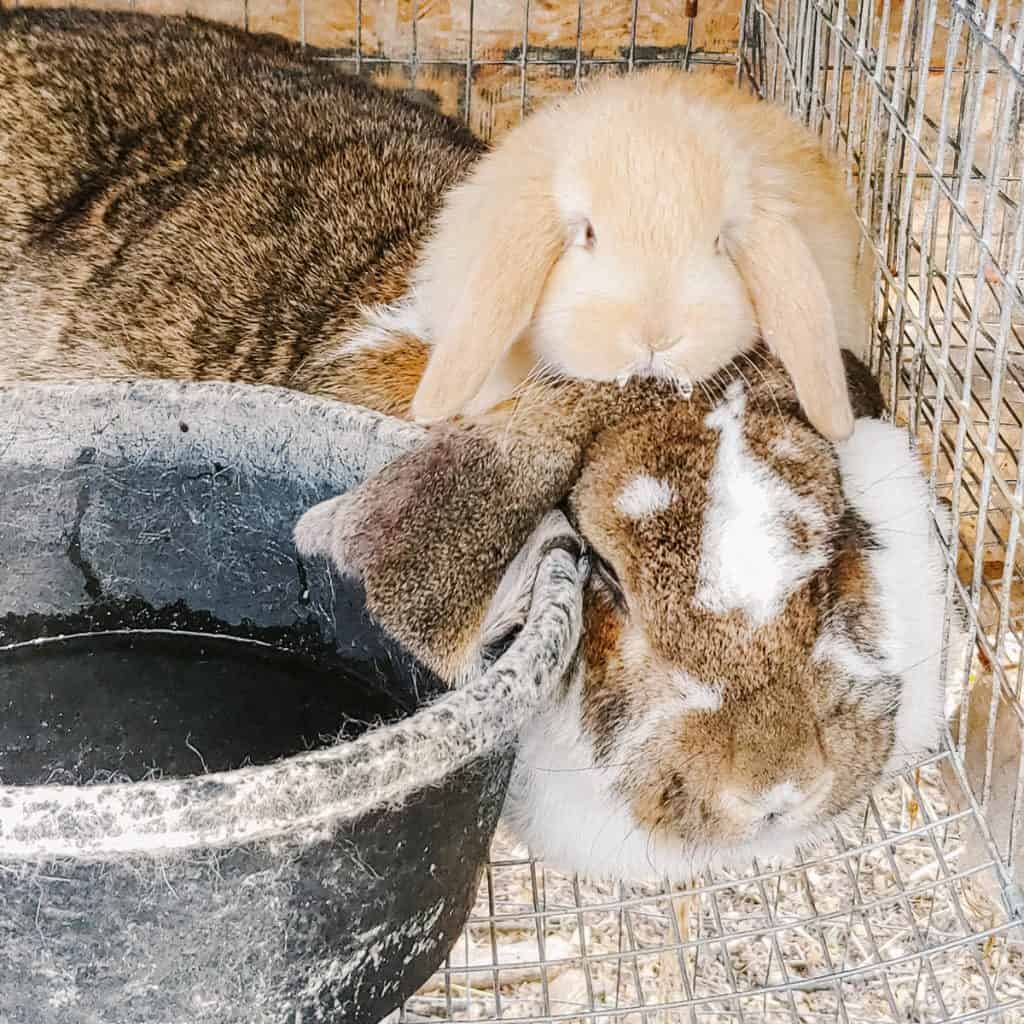
What do Baby Rabbits Look Like?
- Newborn baby rabbits (kits) are blind, furless, and helpless.
- Their eyes open between 7-10 days after birth.
- At two weeks of age, they are covered in fur.
- By four weeks, they are able to walk and hop.
- At four weeks old, the kits are weaned from their mother and become independent.
Mother Rabbit Feeding Babies
- Mother rabbits create a nest and line it with fur that they pluck from their own bodies.
- Mother rabbits can produce milk to feed their babies and will nurse them up to four weeks.
- The mother rabbit will only visit her nest a few times a day to feed her babies.
- She will stay for a few minutes each time to feed them, then quickly leave to avoid attracting predators.
- Once the kits are four weeks old, the mother rabbit will no longer feed them.
How to Care for a New Baby Bunny
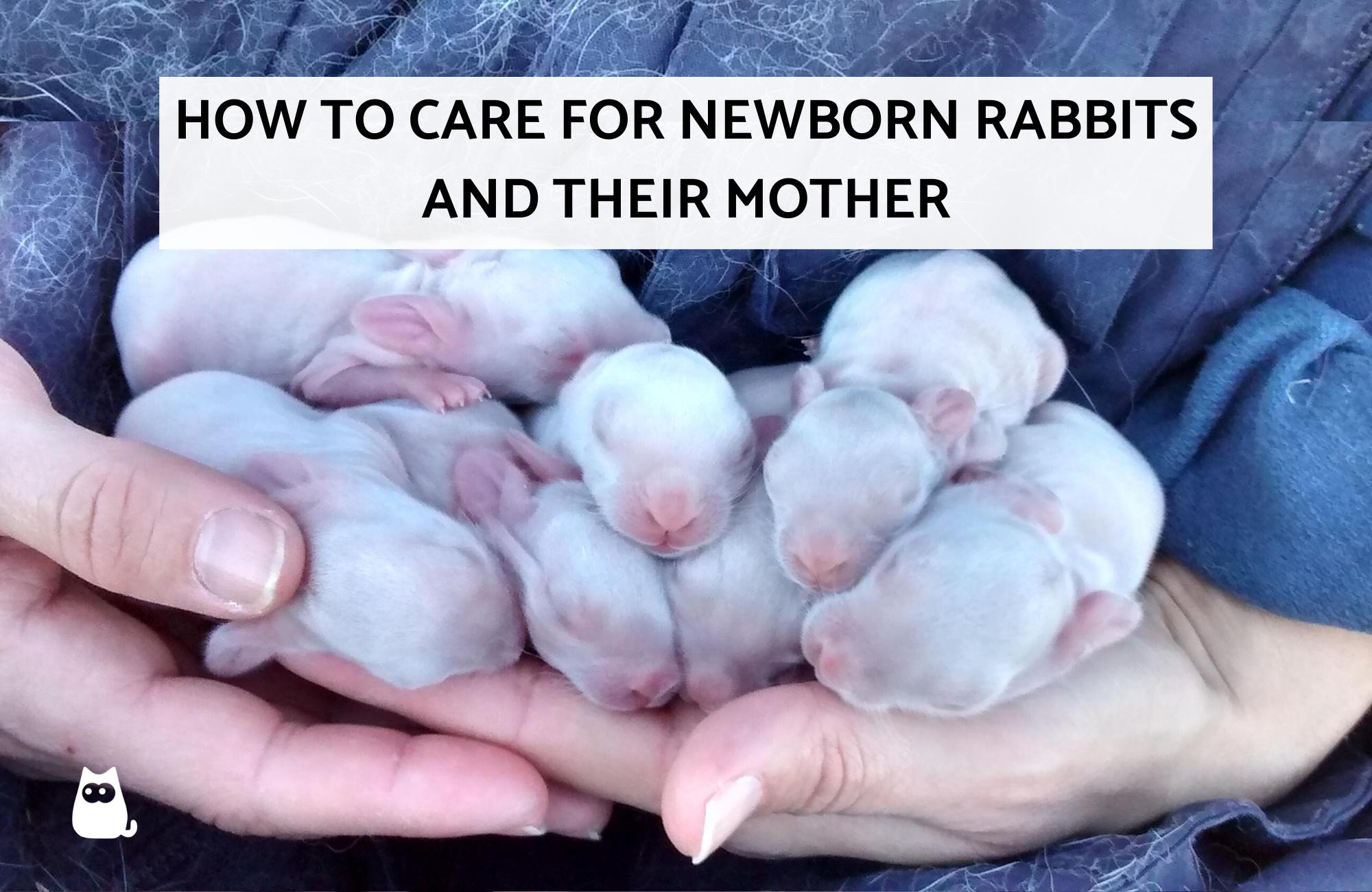
Diet: Bunny babies should be given a diet of hay, fresh vegetables and fruits, and high-quality pellets. Avoid giving them too many treats as this can lead to obesity. Change their water twice a day and provide them with plenty of chew toys.
Environment: Keep the bunny babies in a warm and dry environment. Make sure the cage is big enough to hop around in and that it has plenty of space for the bunnies to hide. Place the cage in a quiet and secure place, away from direct sunlight and drafts.
Socialization: Bunnies need to be socialized in order to become friendly. Spend time with them every day and talk to them in a soothing voice. Handle them gently and gradually increase their time spent outside of their cage.
Grooming: Brush your bunny babies daily to remove dirt and debris. Trim their nails regularly, and check their ears and eyes for any signs of infection.
Vet Care: Take your bunny babies to the vet for a checkup at least once a year. Vaccinate them against common diseases and parasites, and have them spayed or neutered as soon as possible.
What Should You Feed a Baby Rabbit?
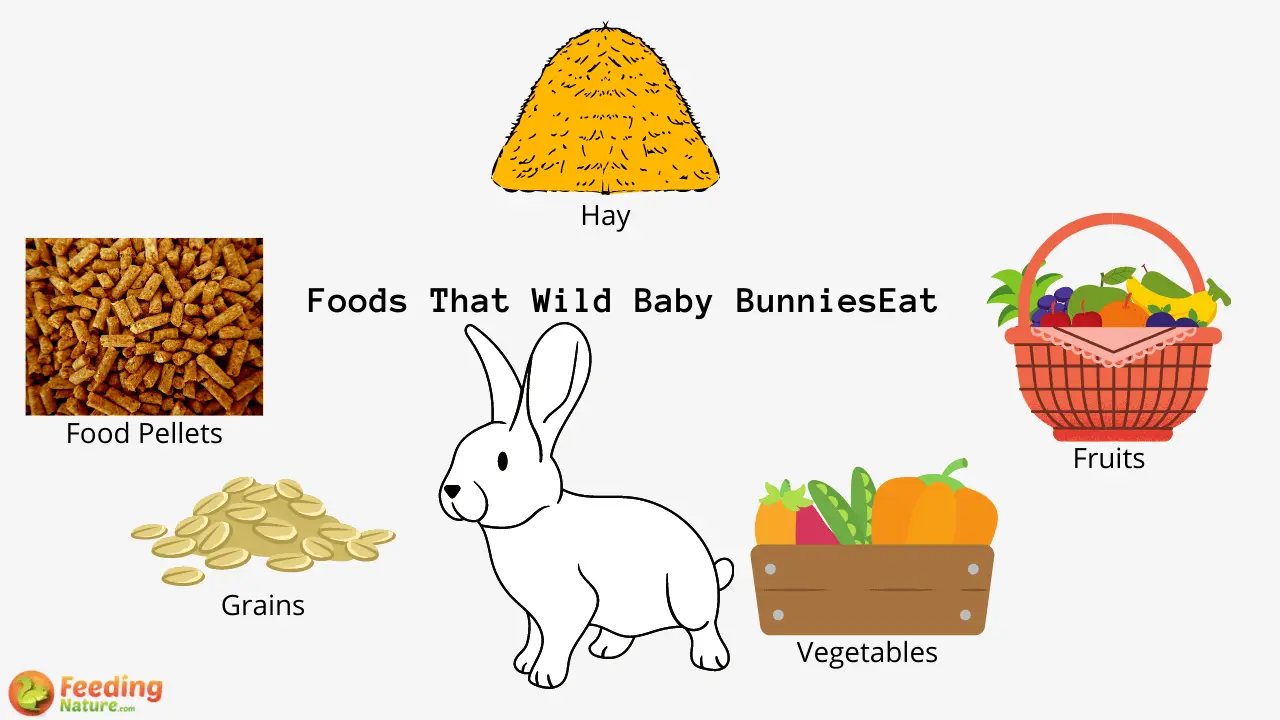
Bunny Babys need to be fed a high-fiber diet that is low in protein. The best food for baby rabbits consists of hay, fresh vegetables, and a small amount of pellets.
Hay should make up a majority of the baby rabbit’s diet and should be offered at all times. Timothy hay is best, as it’s high in fiber and low in protein.
Young rabbits can start to eat fresh vegetables when they are around 6-8 weeks old. Offer them a variety of vegetables, such as carrots, romaine lettuce, and spinach. Be sure to feed only fresh and pesticide-free produce.
A small amount of pellets can also be given to baby rabbits. Choose high-fiber, low-protein pellets that are specially formulated for bunny babys. The pellets should make up no more than 10% of the rabbit’s diet.
Baby rabbits should never be given dairy products, grains, or fruits. These can be difficult for them to digest, and can cause digestive issues.
As rabbits grow, they will need to have their diets adjusted. Adult rabbits need more hay and less pellets, as well as fresh vegetables.
How to Socialize a Baby Rabbit
Socializing a baby rabbit is important for it to become a calm and friendly pet in the future. Here are some tips on how to do it:
- Handling: Handle the baby rabbit gently and carefully, making sure not to startle it. The more you handle the baby rabbit, the more it will get used to being around humans.
- Noises: Introduce the baby rabbit to everyday household noises, such as a vacuum cleaner, TV, or radio. This will help it become comfortable with these sounds.
- Toys: Provide the baby rabbit with toys to play with, such as a cardboard box or stuffed animal. It will become accustomed to these objects and will learn to trust them.
- Interaction: Allow other family members or friends to interact with the baby rabbit, as long as they are gentle and patient. This will help it become comfortable with new people.
It is important to remember that it is best to wait until the baby rabbit is at least 8 weeks old before starting to socialize it. This is because it needs to be weaned from its mother and should be old enough to be handled by humans. It is also important to remember that socializing a baby rabbit should be done gradually, as too much too soon can be overwhelming for the animal.
Frequently Asked Questions
What is the Best Age to Adopt a Baby Rabbit?
The best age to adopt a baby rabbit is 8-10 weeks old. At this age, they are old enough to be weaned and independent, yet still young enough to bond with their new owners.
- Under 8 weeks old: Rabbits this young have not yet been weaned and are not likely to be independent. They require specialized care and nutrition that may not be suitable for the average pet owner.
- 8-10 weeks old: At this age, rabbits are old enough to be weaned and independent. They are also young enough to bond with their new owners and can be easily trained.
- Older than 10 weeks: Rabbits over 10 weeks old may not bond as easily to their new owners and may be more difficult to train. It is also more difficult to assess the health of an older rabbit.
It is important to remember that all rabbits, regardless of age, require regular veterinary care and a healthy diet. If you are considering adopting a baby rabbit, it is important to research the breed and the care requirements to ensure that you have the right environment and resources to provide a healthy and happy home for them.
How do I know if a baby rabbit is healthy?
Signs of a Healthy Baby Rabbit:
- A healthy baby rabbit will have bright and alert eyes.
- The rabbit’s coat will be glossy and free of bald patches.
- The rabbit’s fur should not be greasy or matted.
- The rabbit’s nose and ears should be clean and free of dirt or discharge.
- The rabbit should be active, alert and responsive to its environment.
- The rabbit should not be sneezing, coughing or wheezing.
- The rabbit should not have any external parasites (such as fleas) on its body.
- The rabbit should have strong, well-developed hind legs.
- The rabbit’s droppings should be firm and well-formed.
If you suspect your baby rabbit is unwell, you should take it to your vet for a check-up.
How Much Space Does a Baby Rabbit Need?
Baby rabbits need plenty of space to move, explore, and exercise. An ideal enclosure for a baby rabbit should be at least 8 square feet, with a minimum of 4 square feet per rabbit. The enclosure should also include areas for hiding, such as a box or tunnel, and different levels or platforms to explore. Additionally, the enclosure should be escape-proof and made of chew-proof material.
How Often Should a Baby Rabbit be Fed?
Baby rabbits need to be fed every two to four hours. This is especially important during the first two weeks of life when they are completely dependent on their mother’s milk. After this period, the feeding times can be gradually reduced to 4 times a day.
Rabbits can start eating hay and water from the age of 4 weeks. You can start introducing small amounts of hay, grass and water to a baby rabbit from the age of 4 weeks.
- Age 0-2 weeks: Feed every 2-4 hours
- Age 2-4 weeks: Feed every 4-6 hours
- Age 4-8 weeks: Feed 4 times a day
- Age 8 weeks and older: Feed 2-3 times a day
It is important to keep in mind that the amount of food should be increased gradually, as the baby rabbit grows. The amount of food should always be adjusted to the size of the baby rabbit and its activity level. If the baby rabbit is very active, it may need more food than a less active one.
How do I Litter Train a Baby Rabbit?
- Choose a litter box: Choose a litter box with low sides so it is easy for your baby rabbit to access it. Place the litter box in an area that your rabbit frequents.
- Introduce your rabbit to the litter box: Place your baby rabbit into the litter box and give them plenty of praise and treats. Once they understand what the litter box is for, they will begin to use it.
- Supervise your rabbit: Supervise your rabbit while they are in the litter box to ensure they are using it correctly. If they make a mistake, gently move them back into the litter box and give them praise when they use it correctly.
- Clean the litter box regularly: Clean the litter box regularly to ensure your rabbit is using it in a hygienic environment. You should also change the litter regularly as it can start to smell if it isn’t changed often enough.
- Be patient: Litter training a baby rabbit can take time and patience. Don’t get frustrated if your rabbit doesn’t learn quickly. Keep up the training regularly and your rabbit will eventually understand the concept.
Conclusion
Baby rabbits are a wonderful addition to any family. They are full of energy and love, and they require a lot of attention. However, owning a baby rabbit also requires dedication and responsibility. Before bringing a rabbit home, it is important to understand their needs and how to properly care for them. With the right environment and diet, baby rabbits can thrive and make wonderful companions.
References
- Caring for Baby Rabbits, Humane Society
- Raising and Caring for Baby Rabbits, House Rabbit Society
- Rabbit, Wikipedia
